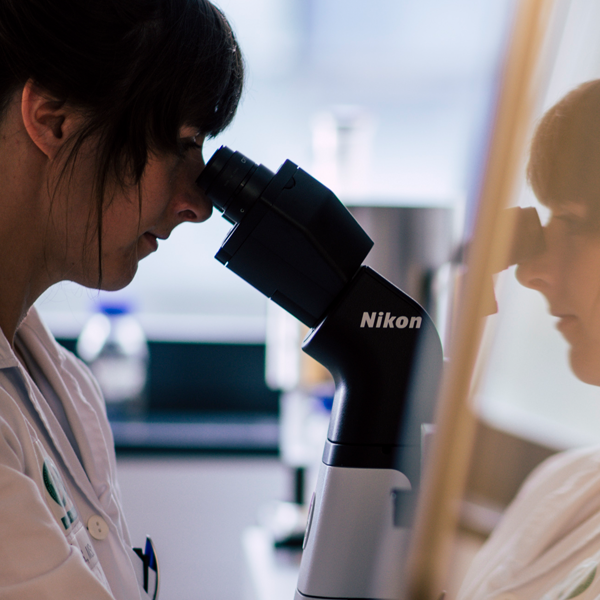- The University
- Studying
-
Research
- Profile
- Infrastructure
- Cooperations
- Services
-
Career
- Med Uni Graz as an Employer
- Educational Opportunities
- Work Environment
- Job openings
-
Diagnostics
- Patients
- Referring physicians
-
Health Topics
- Health Infrastructure
Research
Our research interests include sustainability in clinical practice and in medical research operations, for example resource optimization in the laboratory. Our research field also focuses on developing innovative approaches for more sustainable health in our society.
Our projects
Safe Medication (SiMed): Research and development of an ideal digital medication process in hospitals
- There are still too many errors in the allocation of medicines in hospitals – this gap needs to be closed quickly. In the future, artificial intelligence should help clinics to seamlessly secure the administration of medicines. Algorithms that cannot tire are perfect in this situation to support the staff. In this research project, funded by the FFG, we rely on the four-eyes principle of human and machine for safe medication – intelligent image recognition processes are used.
- Project duration: December 2022 to November 2024
- Funded by: K-Businesscom
- Contact: Priv.-Doz. Mag. Dr. Gerald Sendlhofer (gerald.sendlhofer(at)medunigraz.at)
Establishment of eHealth in rehabilitation of patients with ENT associated malignancies
- Partial and full resections of the larynx are part of the standard therapy for oncological head and neck diseases. In the course of the postoperative treatment, 'basic skills' such as speaking or swallowing have to be relearned. This means frequent outpatient visits or long-term inpatient stays in case the patient lives far away.
In cooperation with the FH Joanneum (department eHealth) the telemedical and web-based software tool ERNA (German: Elektronische Ressource zur Nachbetreuung und Analyse) was developed. ERNA allows a patient-oriented therapy at home, namely on the one hand, in the form of video conferences and, on the other hand, through training plans with video-, picture-, or text-based instructions for exercises individually created by the speech-language therapist. In addition, the patients have the opportunity of self-monitoring by means of a diary capturing, e.g., the general level of wellbeing, current pain, and body weight. Finally, a chat function enables the patients to contact their individual therapist.
The combination of implemented features as well as insights gained in the framework of a first test run with patients represent an important basis for sustainable therapy concepts of the future. - Project duration: January 2021 to June 2023
- Funded by: Gesundheitsfonds Steiermark (Health Fund Styria)
- Contact: Univ.-Prof. Priv.-Doz. Dr. Markus Gugatschka (markus.gugatschka(at)medunigraz.at)




